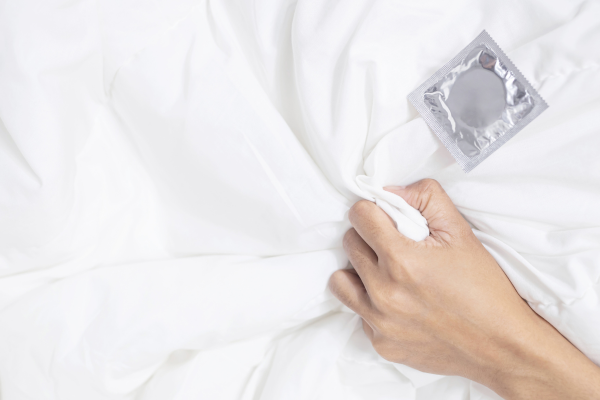Sexual health is a fundamental aspect of overall well-being, deeply intertwined with physical, emotional, and psychological health. Beyond its role in reproduction, sex offers a myriad of physiological benefits that contribute to a healthier, more balanced life. Understanding these benefits can help underscore the importance of maintaining a healthy sexual life as part of a broader wellness strategy.
Cardiovascular Health
Boosts Heart Health: Regular sexual activity has been linked to improved cardiovascular health. During sex, the heart rate increases, and blood circulation is enhanced, similar to a mild workout. Research has shown that men who have sex regularly are less likely to develop heart disease.
Blood Pressure Regulation: Sexual activity, particularly orgasm, has been associated with lower blood pressure. This reduction in stress and blood pressure can contribute to long-term cardiovascular health.
Immune System Enhancement
Strengthening Immunity: Engaging in sexual activity can boost the immune system by increasing the production of immunoglobulin A (IgA), an antibody that plays a crucial role in immune function. A stronger immune system means a better defence against common illnesses like colds and the flu.
Reduced Inflammation: Regular sexual activity has been linked to lower levels of systemic inflammation, which is a key factor in the development of chronic diseases such as diabetes and arthritis.
Hormonal Balance
Endorphin Release: Sex triggers the release of endorphins, the body’s natural “feel-good” hormones. These hormones not only improve mood but also act as natural painkillers, reducing the perception of pain.
Oxytocin Surge: Known as the “love hormone,” oxytocin is released during sex, particularly during orgasm. Oxytocin fosters feelings of bonding and attachment, which can strengthen emotional connections between partners.
Mental and Emotional Health
Stress Reduction: Sexual activity is a natural stress reliever. The physical exertion combined with the emotional connection during sex helps lower cortisol levels, the hormone associated with stress. Lower stress levels contribute to better mental health and overall well-being.
Improved Sleep: The release of oxytocin and prolactin during sex also promotes relaxation and drowsiness, leading to improved sleep quality. Good sleep is essential for cognitive function, emotional regulation, and overall health.
Enhanced Mood: Regular sexual activity is associated with lower rates of depression and anxiety. The combination of physical pleasure, emotional intimacy, and hormonal release creates a powerful mood-boosting effect.

Muscle Toning and Pelvic Floor Health
Strengthening Muscles: Sex can act as a form of exercise, engaging various muscle groups, including the pelvic floor, core, and lower body. Strengthening these muscles not only supports sexual function but also helps prevent conditions like urinary incontinence.
Pelvic Floor Function: Regular sexual activity can contribute to better pelvic floor muscle tone. Strong pelvic floor muscles support the bladder, uterus, and bowel, helping to prevent issues like incontinence and prolapse.
Longevity and Aging
Youthful Vitality: Some studies suggest that regular sexual activity is linked to increased longevity and slower aging. The hormonal and cardiovascular benefits, along with the maintenance of muscle tone, contribute to a more youthful appearance and greater vitality.
Hormone Regulation: In women, regular sex can help regulate hormones, easing menopausal symptoms like hot flashes and mood swings. For men, it can help maintain testosterone levels, which are vital for energy, mood, and sexual function.
Relationships and Social Health
Bonding and Intimacy: Sexual activity fosters intimacy and strengthens bonds between partners. This emotional connection is crucial for maintaining healthy, long-term relationships, which in turn contributes to overall life satisfaction and happiness.
Social Connection: Beyond the individual benefits, a healthy sexual life can enhance social well-being. Positive relationships and a satisfying sexual life contribute to a supportive social network, which is a key factor in mental and emotional health.

And while sex should be a pleasurable experience, for some, it can be painful and distressing. Pain during sex, known as dyspareunia, can affect both men and women and may be due to various physical or psychological factors. Understanding the potential causes, implementing helpful strategies, and knowing when to seek professional help are essential steps in addressing this issue. Let’s start by delving deep into issues that can cause painful sex.
One of the biggest culprits in vagina owners is vaginal dryness. Vaginal dryness is a common issue that can make sex uncomfortable or even painful. This condition occurs when the natural moisture in the vaginal tissues decreases, leading to friction, irritation, and discomfort during intercourse. This can result from hormonal changes (such as during menopause), stress, or certain medications like antihistamines or birth control pills. Vaginal dryness occurs when the tissues of the vagina lose their natural moisture. This can happen for several reasons, ranging from hormonal changes to lifestyle factors. The vaginal walls are typically lined with a thin layer of fluid that maintains elasticity, reduces friction, and protects against infections. When this moisture is insufficient, the vaginal tissues can become dry, irritated, and more prone to injury.
Why Dryness Causes Pain
When the vagina isn’t properly lubricated, friction during sex increases, leading to irritation, burning, and sometimes even small tears in the vaginal lining. This can cause significant pain during and after intercourse, making sex less enjoyable and more stressful.
Hormonal Changes
Menopause: The most common cause of vaginal dryness is menopause. During this time, estrogen levels drop significantly, leading to thinning and drying of the vaginal walls.
Postpartum and Breastfeeding: After childbirth and during breastfeeding, estrogen levels can also be lower, contributing to temporary vaginal dryness.
Birth Control: Certain hormonal contraceptives, particularly those with low estrogen, can reduce natural lubrication.
Medications: Some medications, such as antihistamines, antidepressants, and certain cancer treatments, can cause vaginal dryness as a side effect.
Stress and Anxiety: High levels of stress or anxiety can affect your body’s ability to produce natural lubrication. Stress hormones can interfere with the body’s normal processes, including sexual arousal and lubrication.
Dehydration: Not drinking enough water can lead to overall dehydration, including in the vaginal tissues.
Smoking: Smoking can affect blood circulation, including to the vaginal area, leading to dryness and irritation.
Medical Conditions: Conditions like Sjögren’s syndrome, an autoimmune disorder that affects moisture-producing glands, can cause vaginal dryness.
How Vaginal Dryness Causes Painful Sex
Increased Friction: When there isn’t enough natural lubrication, friction during sex increases. This can cause the delicate tissues of the vagina to become irritated, inflamed, or even torn, leading to pain during and after intercourse.
Tissue Damage: Repeated exposure to friction without adequate lubrication can cause micro-tears in the vaginal lining. These tears can be painful and take time to heal, making sex uncomfortable and even more painful in the future.
Burning Sensation: The lack of moisture can lead to a burning sensation during penetration. This is often due to the sensitivity of dry, irritated tissues coming into contact with the penis or sex toys.
Tightness and Discomfort: Without proper lubrication, the vaginal muscles may tense up, leading to a feeling of tightness or discomfort during sex. This can exacerbate pain and create a cycle where anticipation of pain leads to further muscle tension.
Reduced Arousal and Pleasure: Vaginal dryness can also affect sexual pleasure. The discomfort caused by dryness can make it difficult to relax and enjoy sex, reducing overall arousal and making it harder to reach orgasm.
Infections: Vaginal or penile infections, such as yeast infections, bacterial vaginosis, or sexually transmitted infections (STIs), can cause discomfort or pain during sex.
Pelvic Floor Dysfunction: Overactive or tense pelvic floor muscles can lead to pain during penetration. This condition can be triggered by stress, childbirth, or trauma. Pelvic floor dysfunction (something I commonly treat) can lead to painful sex, a condition known as dyspareunia, due to various factors related to the muscles, nerves, and tissues in the pelvic region. Here’s how it happens:
Muscle Tightness or Spasms: The pelvic floor muscles, which support the pelvic organs and control functions like urination and bowel movements, can become overly tight or go into spasms. When these muscles are tense or in spasm, they can cause pain during penetration or other sexual activities. This tightness can make it difficult or even impossible to relax the muscles during sex, leading to discomfort or pain.
Trigger Points: Trigger points are small, tight knots in the muscle that are tender to the touch and can cause pain in other areas (referred pain). In the pelvic floor, trigger points can develop due to overuse, injury, or stress, leading to pain that may be felt during sexual activity.
Nerve Entrapment: The pudendal nerve, which supplies sensation to the genital area, can become compressed or irritated due to pelvic floor dysfunction. This can result in nerve pain, which may be experienced as sharp, burning, or shooting pain during sex.
Scar Tissue: Pelvic floor dysfunction can also lead to the development of scar tissue, particularly after surgery, childbirth, or injury. Scar tissue can restrict the movement of the pelvic floor muscles and tissues, leading to pain during sex as the area is stretched or compressed.
Lack of Coordination: The pelvic floor muscles need to coordinate properly with other muscles and structures in the pelvis. If there’s a lack of coordination, it can lead to pain. For instance, if the muscles contract when they should be relaxing (or vice versa), it can make sexual activity uncomfortable.
Inflammation: Chronic inflammation of the pelvic floor muscles and surrounding tissues can also contribute to pain during sex. Inflammation may be due to conditions like endometriosis, interstitial cystitis, or infections that affect the pelvic region.
Emotional and Psychological Factors: Chronic pelvic pain and pelvic floor dysfunction can create a cycle where anxiety or fear of pain leads to muscle tension, which in turn causes more pain. This cycle can exacerbate the discomfort experienced during sex.
Hormonal Changes: Hormonal changes, particularly those related to menopause, can cause the pelvic floor muscles and vaginal tissues to become thinner, less elastic, and more prone to irritation, making sex more painful.

In managing pelvic floor dysfunction and its impact on sexual function, a multidisciplinary approach is often beneficial. This might include pelvic floor physical therapy, relaxation techniques, counselling, and, in some cases, medical or surgical interventions.
Endometriosis: This condition, where tissue similar to the lining of the uterus grows outside the uterus, can cause deep pelvic pain during sex.
Vaginismus: An involuntary tightening of the vaginal muscles, making penetration painful or impossible.
Psychological Factors: Anxiety, stress, and past trauma can contribute to pain during sex, leading to a cycle of anticipation and discomfort.
Tips and Tricks to Alleviate Pain
Use Lubricants: If dryness is the issue, using a water-based or silicone-based lubricant can reduce friction and make intercourse more comfortable. Avoid lubricants with glycerin or parabens, which can cause irritation for some individuals.
Communicate with Your Partner: Open communication about your discomfort is crucial. This allows you to explore different positions, pacing, and techniques that may be more comfortable.
Foreplay: Engaging in extended foreplay can increase natural lubrication and help relax the body, making sex less painful.
Pelvic Floor Exercises: Strengthening and relaxing the pelvic floor muscles through exercises like Kegels can help alleviate pain. Consider consulting a pelvic floor therapist for personalized guidance.
Mindfulness and Relaxation: Practicing mindfulness or relaxation techniques before and during sex can reduce anxiety and help you stay present, potentially reducing pain.
Change Positions: Some positions may be less painful than others. Experimenting with different angles and positions can help you find what’s most comfortable.
Warm Baths: Taking a warm bath before sex can help relax muscles and reduce tension in the pelvic area.
When to See a Doctor
If you’ve tried these strategies and still experience pain during sex, it’s important to seek medical advice. Persistent pain could be a sign of an underlying condition that requires treatment. Consider seeing a healthcare provider if you experience:
Ongoing or Severe Pain: Pain that doesn’t improve with at-home strategies or is severe should be evaluated by a healthcare provider.
Bleeding: If you notice unusual bleeding during or after sex, it’s important to get it checked out.
Symptoms of Infection: Discharge, itching, or burning, along with pain during sex, could indicate an infection that needs medical treatment.
Emotional Distress: If anxiety, fear, or past trauma is contributing to pain during sex, speaking with a therapist or counsellor can be beneficial.
The physiological importance of sex extends far beyond reproduction. It plays a critical role in maintaining cardiovascular health, boosting the immune system, balancing hormones, and supporting mental and emotional well-being. Understanding and embracing the benefits of a healthy sexual life can lead to a more fulfilled, vibrant, and healthy existence. Prioritising sexual health as part of a holistic approach to well-being can help individuals achieve a higher quality of life, nurturing both body and mind. Painful sex is more common than many realise, but it’s not something you have to live with. By understanding the causes and trying different approaches, many people can find relief. Don’t hesitate to seek medical advice if the pain persists—your sexual health is an important part of your overall well-being.
